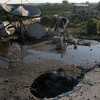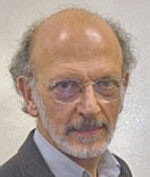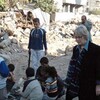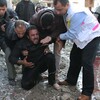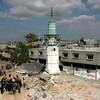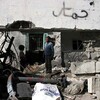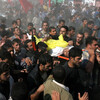
UN officials voice 'shock and dismay' at deadly Israeli shelling of Gaza civilians
8 November 2006
United Nations officials voiced shock and dismay at Israel’s shelling of a residential area in the occupied Gaza Strip in which 18 Palestinian civilians were killed, including eight children and seven women, with Secretary-General Kofi Annan calling on the Israeli Government to cease its military operations there forthwith. In a statement issued by his spokesman, Mr. Annan took note of the reported announcement by Israel of a full investigation and said he looked forward to its early results. He also called on the Palestinians to halt attacks against Israeli targets. The Security Council President for November, Ambassador Jorge Voto-Bernales of Peru, summoned the 15-member body for urgent consultations on the situation, including today’s shelling of the residential area in Beit Hanoun. Read more about UN officials voice 'shock and dismay' at deadly Israeli shelling of Gaza civilians
